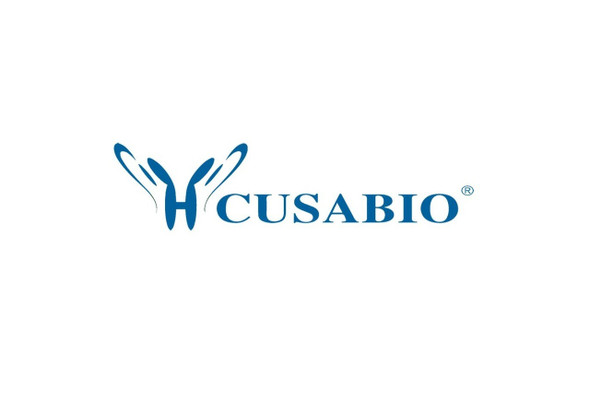Cusabio Bacillus subtilis Recombinants
Recombinant Bacillus subtilis Expansin-yoaJ (yoaJ) | CSB-EP522026BRJ
- SKU:
- CSB-EP522026BRJ
- Availability:
- 13 - 23 Working Days
Description
Recombinant Bacillus subtilis Expansin-yoaJ (yoaJ) | CSB-EP522026BRJ | Cusabio
Alternative Name(s): EXLX1
Gene Names: yoaJ
Research Areas: Others
Organism: Bacillus subtilis (strain 168)
AA Sequence: AYDDLHEGYATYTGSGYSGGAFLLDPIPSDMEITAINPADLNYGGVKAALAGSYLEVEGPKGKTTVYVTDLYPEGARGALDLSPNAFRKIGNMKDGKINIKWRVVKAPITGNFTYRIKEGSSRWWAAIQVRNHKYPVMKMEYEKDGKWINMEKMDYNHFVSTNLGTGSLKVRMTDIRGKVVKDTIPKLPESGTSKAYTVPGHVQFPE
Source: E.coli
Tag Info: N-terminal 6xHis-SUMO-tagged
Expression Region: 26-232aa
Sequence Info: Full Length of Mature Protein
MW: 38.9 kDa
Purity: Greater than 90% as determined by SDS-PAGE.
Relevance: May promote colonization of plant roots. May cause loosening and extension of plant cell walls by disrupting non-covalent bonding between cellulose microfibrils and matrix glucans. Has very low expansin activity (in vitro). No enzymatic activity has been found. Binds to peptidoglycan and to plant cell walls.
Reference: Crystal structure and activity of Bacillus subtilis YoaJ (EXLX1), a bacterial expansin that promotes root colonization.Kerff F., Amoroso A., Herman R., Sauvage E., Petrella S., Filee P., Charlier P., Joris B., Tabuchi A., Nikolaidis N., Cosgrove D.J.Proc. Natl. Acad. Sci. U.S.A. 105:16876-16881(2008)
Storage: The shelf life is related to many factors, storage state, buffer ingredients, storage temperature and the stability of the protein itself. Generally, the shelf life of liquid form is 6 months at -20?/-80?. The shelf life of lyophilized form is 12 months at -20?/-80?.
Notes: Repeated freezing and thawing is not recommended. Store working aliquots at 4? for up to one week.
Function: May promote colonization of plant roots. May cause loosening and extension of plant cell walls by disrupting non-covalent bonding between cellulose microfibrils and matrix glucans. Has very low expansin activity (in vitro). No enzymatic activity has been found. Binds to peptidoglycan and to plant cell walls.
Involvement in disease:
Subcellular Location: Secreted, cell wall
Protein Families:
Tissue Specificity:
Paythway:
Form: Liquid or Lyophilized powder
Buffer: If the delivery form is liquid, the default storage buffer is Tris/PBS-based buffer, 5%-50% glycerol. If the delivery form is lyophilized powder, the buffer before lyophilization is Tris/PBS-based buffer, 6% Trehalose, pH 8.0.
Reconstitution: We recommend that this vial be briefly centrifuged prior to opening to bring the contents to the bottom. Please reconstitute protein in deionized sterile water to a concentration of 0.1-1.0 mg/mL.We recommend to add 5-50% of glycerol (final concentration) and aliquot for long-term storage at -20?/-80?. Our default final concentration of glycerol is 50%. Customers could use it as reference.
Uniprot ID: O34918
HGNC Database Link: N/A
UniGene Database Link: N/A
KEGG Database Link: KEGG
STRING Database Link: STRING
OMIM Database Link: N/A









